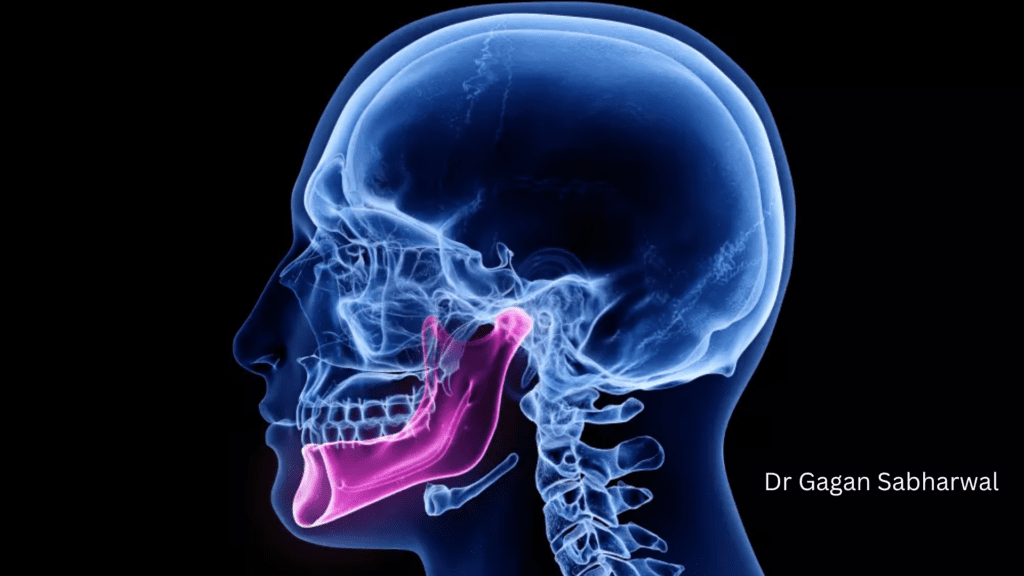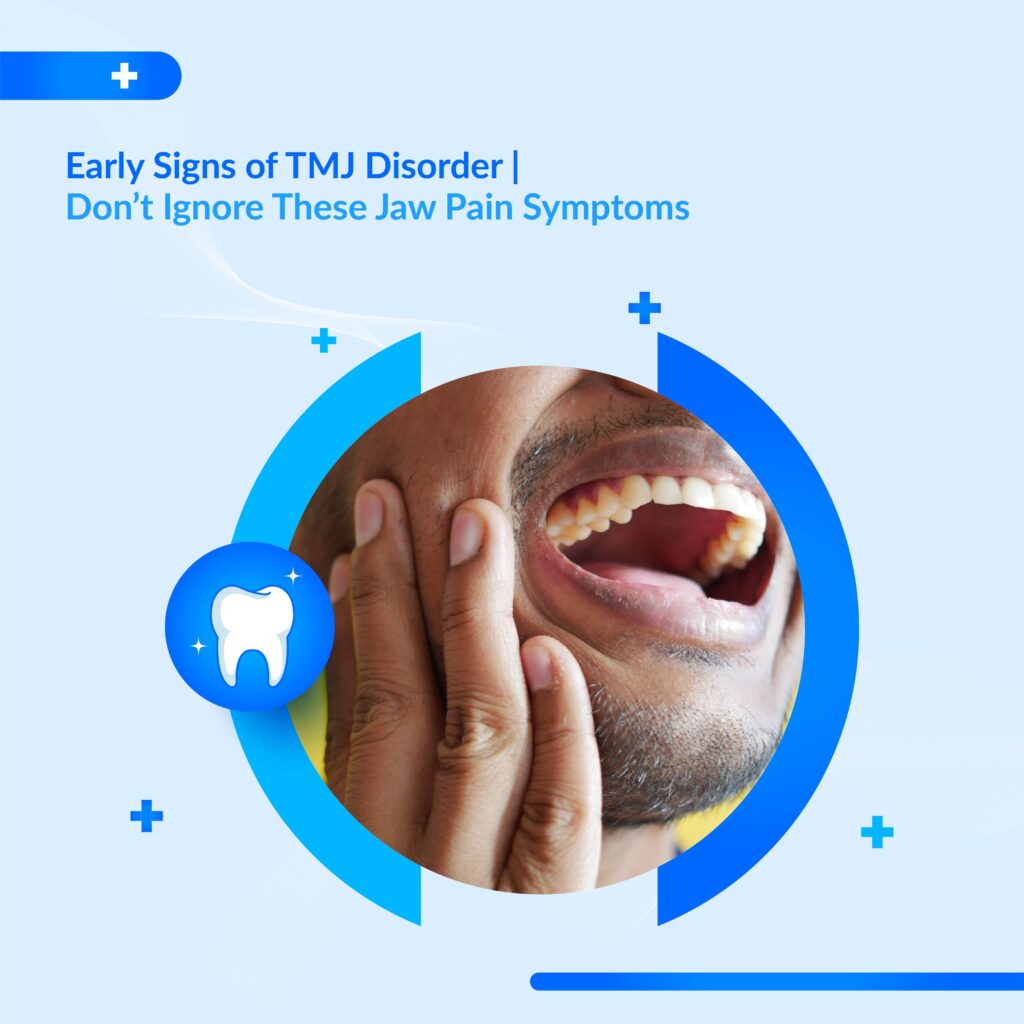Does your jaw click when you chew, talk, or yawn? Do you wake up with a sore face or tension headache? If in affirmative, your body might be signaling the early signs of TMJ disorder, a condition you mustn’t ignore.
What Is the TMJ?
The temporomandibular joint (TMJ) connects your jaw to your skull. It aids you in eating, talking, yawning, and smiling. Think of it as a sliding hinge that moves your jaw up, down, and side to side. When this joint gets strained or inflamed, it leads to TMJ symptoms.
Typical Causes of TMJ Disorders
TMJ disorders can have many causes. Some of the most common include:
- Grinding or clenching your teeth (most likely during sleep)
- Stress that causes jaw tightening
- Jaw or face injury
- Bad posture, especially while using phones or laptops
- Arthritis or joint wear and tear
- Crooked bite or missing teeth
At Dr Gagan Sabharwal ’s clinic, we recognize and treat the root cause using a tailored approach.
Early Signs of TMJ: Don’t Miss These
The trouble with TMJ symptoms is they start fractionally, often mistaken for other problems. Here are the signs you must not ignore:
- Clicking or popping sounds in the jaw
- Pain around the jaw, temples, or ears
- Headaches that feel like stress or migraines
- Strain in opening or closing the mouth fully
- Facial stiffness, especially in the morning
- Jaw locking or getting rammed when yawning
- Pain while chewing hard or chewy foods
These are cautioning signals. Early detection can prevent permanent damage.

The Peril of Ignoring TMJ Jaw Pain
Many patients wait until the pain gets intolerable. This delay can lead to:
- Severe jaw stiffness
- Increased prevalence of headaches
- Difficulty eating or speaking
- Long-term joint damage
- Need for invasive treatments later
At Dr Gagan Sabharwal ’s clinic, early mediation often means no surgery is needed.
How to Do a Simple Self-Check
You can do a few swift tests at home:
- Position fingers on your jaw joints near the ears. Open your mouth. Do you feel clicking or grinding?
- Chewing gum or gritty food. Does it cause soreness later?
- Detecting morning headaches paired with facial tightness or tooth sensitivity?
If you answered yes to any, it’s time to talk to a TMJ expert.
Treatment Options: Relief Is Possible
There’s no universal design for temporomandibular joint disorder, but there are many effective treatments:
- Lifestyle Changes: Stress relief, posture correction, and steer clear of gum or hard foods
- Mouthguards: Ritual night guards to prevent teeth grinding
- Medication: Muscle relaxants or anti-inflammatory drugs
- Therapy: Jaw exercises, physical therapy, or behavioral therapy
- Advanced Solutions: Botox for muscle relaxation or surgical treatment for acute cases
Dr. Sabharwal endorses treatment only after a complete diagnosis using advanced imaging and clinical expertise.
Why Choose Dr. Gagan Sabharwal?
Dr. Sabharwal is a globally trained oral and maxillofacial surgeon based in India. He specifically treats complex facial pain, including TMJ. With a modern clinic, state-of-the-art imaging, and a compassionate team, your treatment is in trusted hands.
Many patients from around the world visit Dr. Sabharwal for accurate, personalized solutions that avoid unnecessary surgeries.
A Real Story: From Clicking Jaw to Calm
A 35-year-old professional visited with persistent clicking and neck stiffness. She thought it was stress. After a thorough TMJ assessment, we found severe bruxism. With a simple night guard, posture guidance, and muscle therapy, her symptoms dissipated within weeks.

When Should You Look For Help?
Proceed fast if you:
- Hear frequent jaw clicks
- Wake up with facial rigidity
- Experience difficulty eating or yawning
- Ongoing facial jaw stiffness or discomfort
These aren’t small exasperations, they’re early signs of TMJ disorder.
Final Thoughts: Take Heed of Your Jaw
Your jaw is trying to tell you something. Don’t wait until pain makes life difficult. The sooner you address TMJ symptoms, the easier it is to treat.
Visit Us Here to book a consultation. Your jaw deserves expert care. Relief starts with awareness. And awareness starts now. Halt the pain before it halts you.



